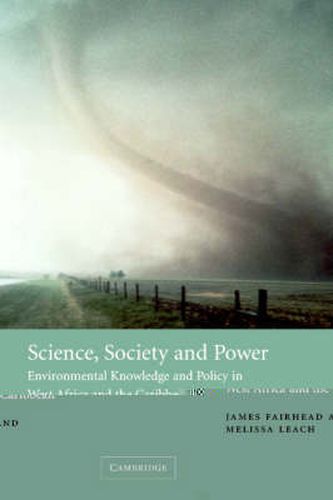Readings Newsletter
Become a Readings Member to make your shopping experience even easier.
Sign in or sign up for free!
You’re not far away from qualifying for FREE standard shipping within Australia
You’ve qualified for FREE standard shipping within Australia
The cart is loading…






In this book, James Fairhead and Melissa Leach bring science to the heart of debates about globalisation, exploring transformations in global science and contrasting effects in Guinea, one of the world’s poorest countries, and Trinidad, a more prosperous, industrialised and urbanised island. The book focuses on environment, forestry and conservation sciences that are central to these countries and involve resources that many depend upon for their livelihoods. It examines the relationships between policies, bureaucracies and particular types of scientific enquiry and explores how ordinary people, the media and educational practices engage with this. In particular it shows how science becomes part of struggles over power, resources and legitimacy. The authors take a unique ethnographic perspective, linking approaches in anthropology, development and science studies. They address critically prominent debates in each, and explore opportunities for new forms of participation, public engagement and transformation in the social relations of science.
$9.00 standard shipping within Australia
FREE standard shipping within Australia for orders over $100.00
Express & International shipping calculated at checkout
In this book, James Fairhead and Melissa Leach bring science to the heart of debates about globalisation, exploring transformations in global science and contrasting effects in Guinea, one of the world’s poorest countries, and Trinidad, a more prosperous, industrialised and urbanised island. The book focuses on environment, forestry and conservation sciences that are central to these countries and involve resources that many depend upon for their livelihoods. It examines the relationships between policies, bureaucracies and particular types of scientific enquiry and explores how ordinary people, the media and educational practices engage with this. In particular it shows how science becomes part of struggles over power, resources and legitimacy. The authors take a unique ethnographic perspective, linking approaches in anthropology, development and science studies. They address critically prominent debates in each, and explore opportunities for new forms of participation, public engagement and transformation in the social relations of science.